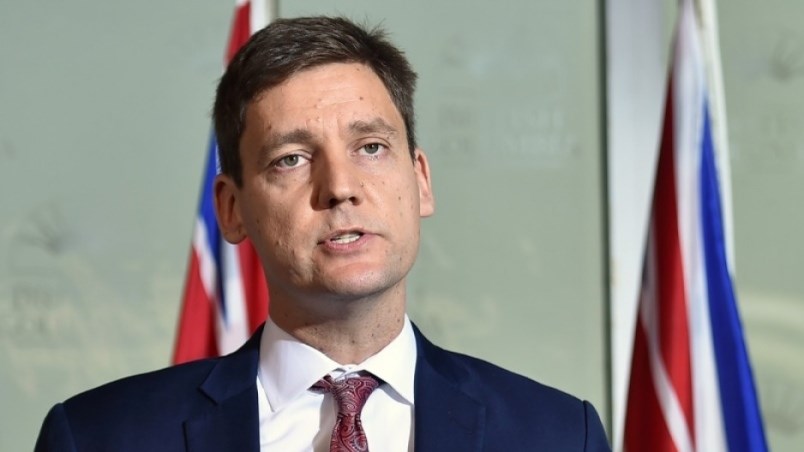B.C.’s former Liberal government should immediately release uncensored cabinet documents related to money laundering to a commission into the issue, according to Attorney General David Eby.
But, he added, a previous administration can allow public servants to release such documents. The issue, he said, is that a Liberal delegate would work with bureaucrats to release such records.
That delegate, he explained, is former finance minister Mike de Jong, who could be called as a witness by Commissioner Austin Cullen.
He said de Jong wants to decide which documents should be released.
“He is in a profound conflict of interest,” Eby said.
Eby said he has requested the documents but not seen them.
Eby said the Abbotsford West MLA “is the last person, perhaps the last person on earth, who should be taking on this job.” Eby said de Jong likely has “detailed knowledge” of the money laundering situation, information Eby said was made known to de Jong while in government.
Eby said de Jong either kept the problem secret “or was so bad at his job that he did not know what was going on.”
The Liberal Party is currently listening to the press conference recording before making a statement. The party called Eby’s charges serious.
The commissioner begins hearings today in Vancouver.
The provincial government created the commission in May 2019 to study the extent of money laundering and its impact on multiple economic sectors. Those include gaming, horse racing, real estate, financial institutions and money service businesses, the corporate sector, luxury goods and regulated professionals – including those of lawyers and accountants.
The commission’s mandate is to review acts or omissions by people and agencies responsible for combating money laundering. The aim is to determine whether those acts or omissions contributed to the spread of money laundering and if so, whether corruption is involved.
“Money laundering is a particularly insidious crime. Its roots are in offences that victimize others – often people who are vulnerable. In its actual commission, however, money laundering is akin to the transmission of a serious contagious disease,” Commissioner Austin Cullen said in November.
The inquiry has a broad mandate but was largely fuelled by concerns dirty money from China poured into Vancouver real estate – sometimes through local casinos licensed by BCLC – causing immense price gains and record levels of sales (flipping) in only a short period of time.



